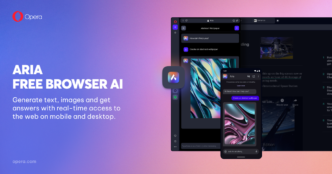After months of speculation, OpenAI has officially acquired “io,” the stealthy startup co-founded by design legend Jony Ive and OpenAI CEO Sam Altman. The price? A staggering $6.5 billion. This acquisition marks a bold leap from partnership to ownership, signaling just how central this project is to OpenAI’s future.
Originally, the plan was simple: Ive’s team would build the hardware while OpenAI provided the AI brains. But as the vision expanded, so did the ambition. Now, OpenAI wants to make the device more than just an accessory—it’s aiming for a new category altogether. In an internal message, Altman described the AI device as “the biggest thing we’ve ever done as a company,” hinting at a goal of reaching 100 million units faster than any product launch in tech history.
A Glimpse at the AI “Companion” That Could Redefine Everyday Tech
So, what exactly are they building? Altman has kept details close to the vest, but a few juicy tidbits have emerged. The device, dubbed an AI “companion,” won’t be a smartphone, wearable, or even a pair of smart glasses. Instead, it’s designed to be hyper-aware of its user’s environment—and even their life. Think of it as an ever-present assistant that blends seamlessly into your daily routine.
According to Apple supply chain analyst Ming-Chi Kuo, the prototype resembles a necklace, worn around the neck rather than clipped to clothing. It’ll be slightly larger than the Humane AI Pin but as minimalist and elegant as the iconic iPod Shuffle. Notably, it won’t have a screen. Instead, it will interact via voice and visuals using microphones and cameras. It’s not trying to replace your phone but rather enhance how you interact with all your devices.
Altman reportedly took a prototype home and called the experience “living with it,” which hints at how personal this device is intended to be. He believes current laptops and phones aren’t built for the sci-fi-level AI potential his company is chasing. That’s why OpenAI is aiming for a late 2026 launch, with mass production possibly beginning in 2027.
Can OpenAI Break the Smartphone Mold—Or Will It Join the AI Pin Graveyard?
This isn’t just another product drop. Altman wants this AI device to be the new interface for interacting with OpenAI’s ecosystem. In fact, he’s floated the idea that ChatGPT subscribers might someday receive dedicated OpenAI “computers” instead of just logging in from a web browser. That kind of thinking reveals just how deeply this project could reshape consumer tech.
Still, questions remain. Can this mysterious AI companion truly break the smartphone’s stranglehold? Or will it follow other ambitious attempts—like Humane’s AI Pin—into the pile of innovative yet underwhelming gadgets?
Altman, for one, isn’t hedging his bets. He’s already declared it could be “the coolest piece of technology that the world will have ever seen.” Whether that confidence is justified will likely unfold over the next few years.













